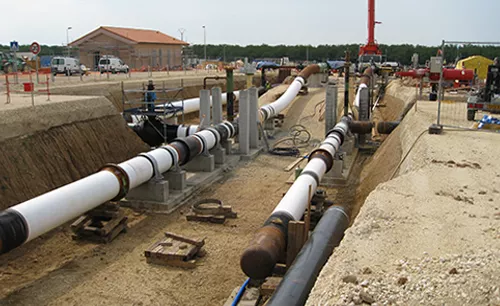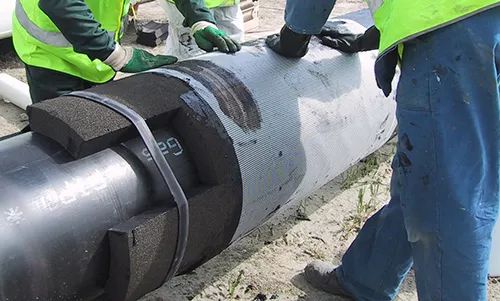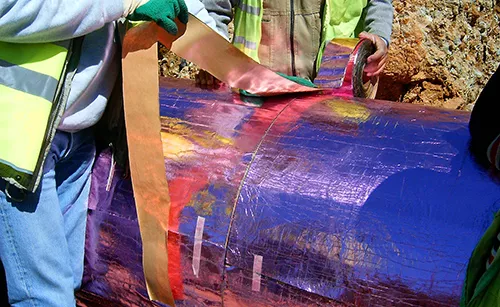Below ambient underground process piping and equipment

Thermal insulation solutions for underground piping and equipment operating at below ambient temperatures.
Underground pipes are often used for the transportation of products for energy purposes, which include natural gas, biofuels, and liquid petroleum. These piping networks are used to transport gas or liquids from stationary facilities such as production wells or import/export facilities, and deliver to a variety of locations or directly to other export facilities.
Direct burial of these piping networks has many advantages. These include space considerations, fire safety and protection from the elements. However, unless installed and maintained properly, underground pipes can have the potential for many hazards.
Possible leaks or damages to the pipes can exist undetected for years and cause severe consequences in terms of safety and pollution.
Many of these pipes are made of steel and therefore could be subjected to corrosion because of leakage or direct contact with ground water. This is one of the reasons why they are protected with an insulation system that is capable of meeting the mechanical and corrosion resistance requirements of direct burial, while providing long-term insulation efficiency.
Due to the pressure of the surrounding soil, it’s important to choose an insulation material that has high compressive strength without additional structural protection. This will help ensure that the insulation does not compress, which could harm the thermal efficiency and overall performance of the system.
A FOAMGLAS® insulation system helps protect underground pipes from possible ingress of moisture, limiting corrosion of the pipe. FOAMGLAS® insulations helps keep the system dry and maintain its thermal efficiency over time, so the integrity of the content is maintained and operating costs are controlled.
The high compressive strength of FOAMGLAS® insulation makes it an ideal material for direct burial applications because it can easily withstand the pressure that comes from burial. The system will not compress and will provide the same thermal properties throughout the life of the system.
Because it is non-combustible and will not absorb liquid hydrocarbons, it also assists with fire safety. Should a leakage occur, it will not absorb possibly flammable contents as other insulation materials may.
Typical configuration
for underground below ambient piping and equipment:
- A possible anti-corrosion layer applied on the insulated surface
- A possible anti-abrasive layer if needed
- One or several layers of FOAMGLAS® cellular glass dry applied and sealed with a PC® Sealant
- Fabric reinforced PC® coating or a PC® wrap
Legal notice
The information relating to the products and systems contained on this website is provided in good faith and for general information purpose only. Such information is in any event subject to our product’s legal notice, the content of which users are invited to acknowledge under the following link: Legal Notice








